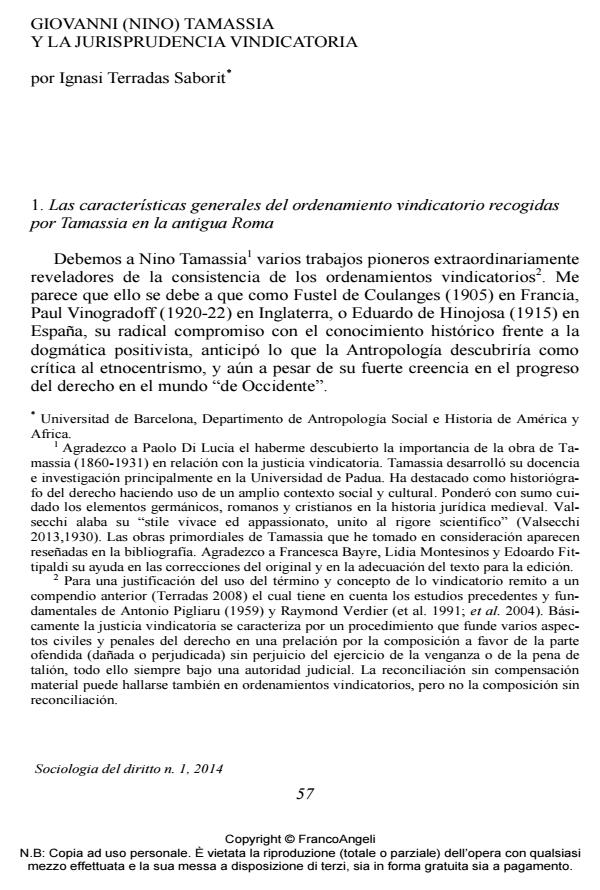Giovanni (Nino) Tamassia and vindicatory law
Journal title SOCIOLOGIA DEL DIRITTO
Author/s Saborit Ignasi Terradas
Publishing Year 2014 Issue 2014/1
Language Spanish Pages 38 P. 57-94 File size 428 KB
DOI 10.3280/SD2014-001003
DOI is like a bar code for intellectual property: to have more infomation
click here
Below, you can see the article first page
If you want to buy this article in PDF format, you can do it, following the instructions to buy download credits

FrancoAngeli is member of Publishers International Linking Association, Inc (PILA), a not-for-profit association which run the CrossRef service enabling links to and from online scholarly content.
The study of vindicatory law conducted by legal historians towards the end of the nineteenth century - of whom Giovanni (Nino) Tamassia [1860-1931] was an outstanding exponent - has itself a characteristic of vindicatory law, since it was conducted with method and with intellectual probity, even though the discovery of vindicatory law conflicted with the belief in the progress of law which the same historians sustained at that time. In practice, they explained vindicatory law using motives that clashed with the hegemonic criterion of a linear progress of law. Tamassia in particular described and explained certain underlying characteristics of vindicatory law, including privileging conciliation, the legal context of the feud and vendetta construed as a penalty issued by an authority.
Keywords: Giovanni Tamassia ‒ Vindicatory Law ‒ Conciliation ‒ Feud ‒ Vendetta
- Il Codice cavalleresco italiano di Jacopo Gelli Un’interpretazione in chiave vendicatoria Riccardo Mazzola, in Milan Law Review /2024 pp.124
DOI: 10.54103/milanlawreview/27708 - Vindicatory Justice Ignasi Terradas Saborit, pp.3 (ISBN:978-3-030-79594-8)
- Vindicatory Justice Riccardo Mazzola, pp.81 (ISBN:978-3-030-79594-8)
Saborit Ignasi Terradas, Giovanni (Nino) Tamassia y la jurisprudencia vindicatoria in "SOCIOLOGIA DEL DIRITTO " 1/2014, pp 57-94, DOI: 10.3280/SD2014-001003